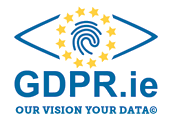Report to the Chairman, Committee on Energy and Commerce, House of Representatives
[text_block id=”21b8412071afae8d71ee7c4485e6d03f” content=”‹¨›h2‹˜›INTERNET PRIVACY.‹¨›/h2‹˜›‹¨›h3‹˜›Additional Federal Authority Could Enhance Consumer Protection and Provide Flexibility.‹¨›/h3‹˜›‹¨›p‹˜›‹¨›strong‹˜›What GAO Found‹¨›/strong‹˜›‹¨›/p‹˜›‹¨›p‹˜›The United States does not have a comprehensive Internet privacy law governing the collection, use, and sale or other disclosure of consumers’ personal information. At the federal level, the Federal Trade Commission (FTC) currently has the lead in overseeing Internet privacy, using its statutory authority under the FTC Act to protect consumers from unfair and deceptive trade practices. However, to date, FTC has not issued regulations for Internet privacy other than those protecting financial privacy and the Internet privacy of children, which were required by law. For FTC Act violations, FTC may promulgate regulations but is required to use procedures that differ from traditional notice-and-comment processes and that FTC staff said add time and complexity.‹¨›/p‹˜›‹¨›p‹˜›The full report:‹¨›/p‹˜›‹¨›p‹˜›#USA, #CambridgeAnalytica, #Privacy #GAO,‹¨›/p‹˜›‹¨›p‹˜›‹º›su_document url‹´›‹²›https://www.gao.gov/assets/700/696437.pdf‹²› width‹´›‹²›800‹²› height‹´›‹²›1600‹²›‹¹›‹¨›/p‹˜›” paragraph_whitespace=”false” text_size=”” line_height=”” text_color=”” margin=”0px 0px 15px 0px” class=”” _fw_coder=”aggressive” __fw_editor_shortcodes_id=”307be3d236026d95773ec01d2d77fb7b”][/text_block]
Recommended Posts

